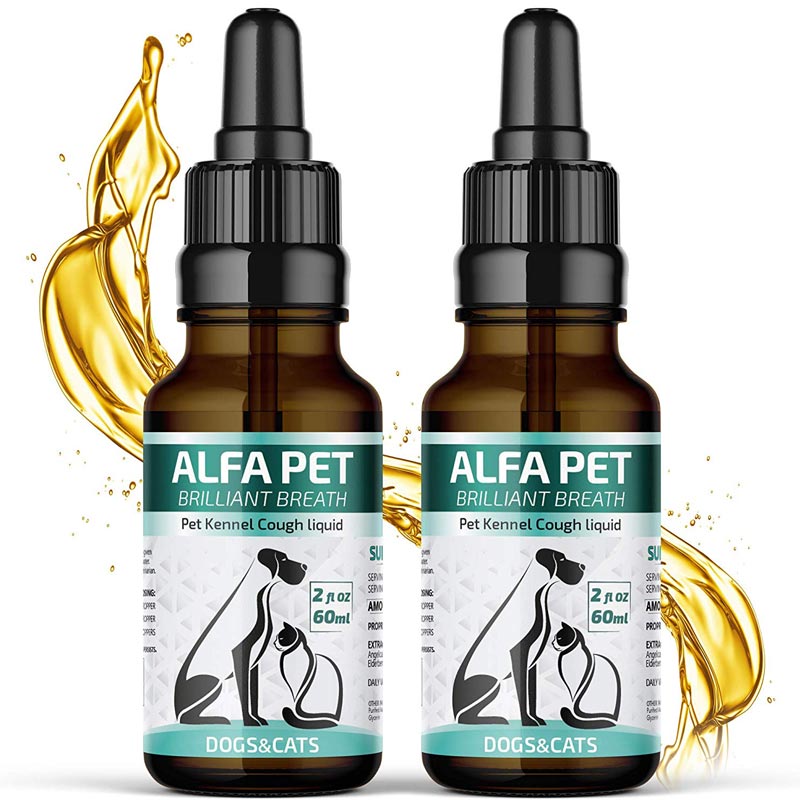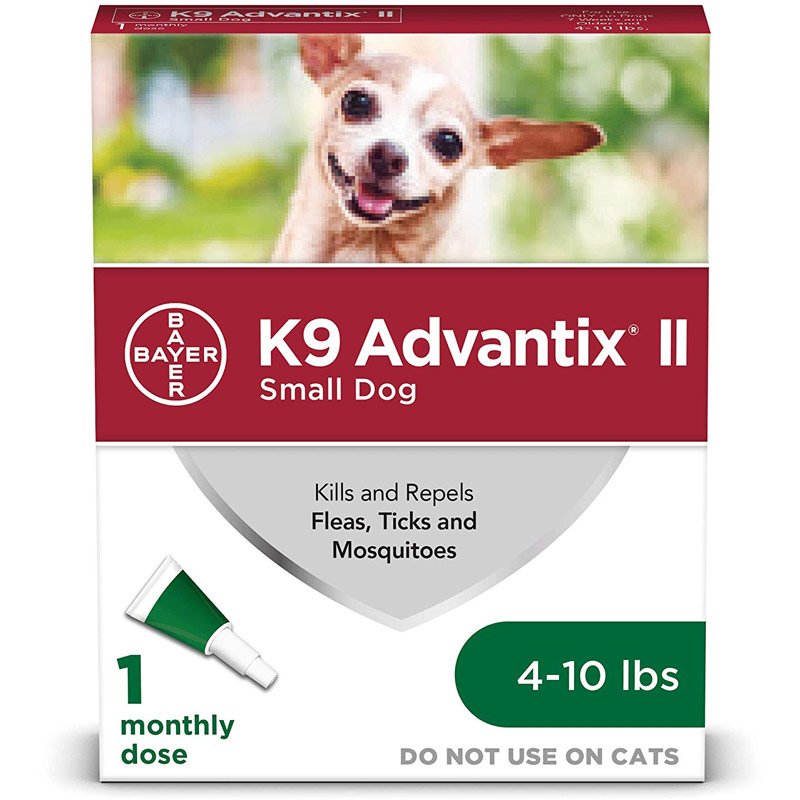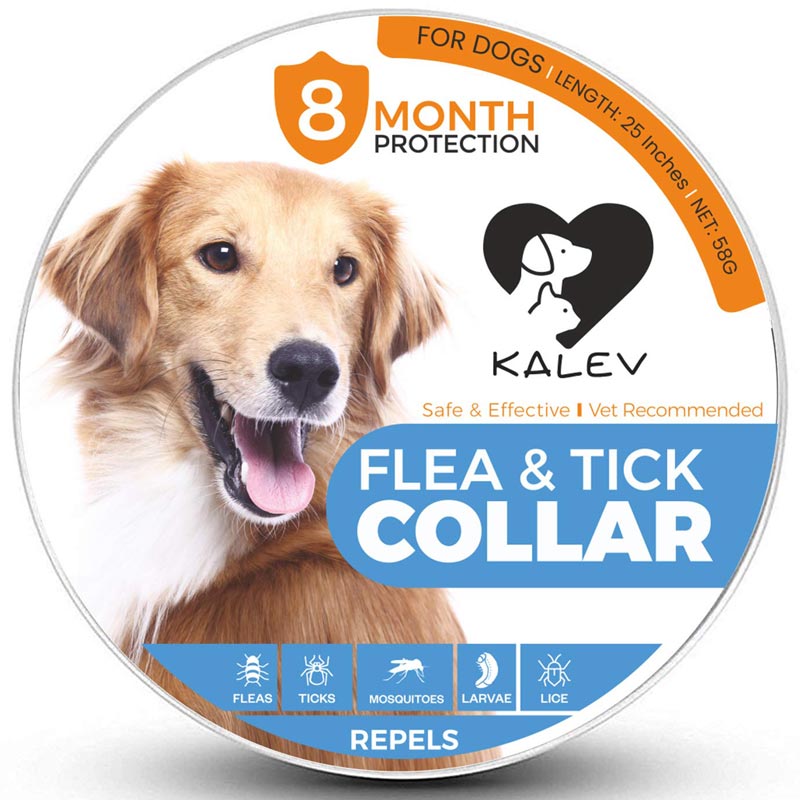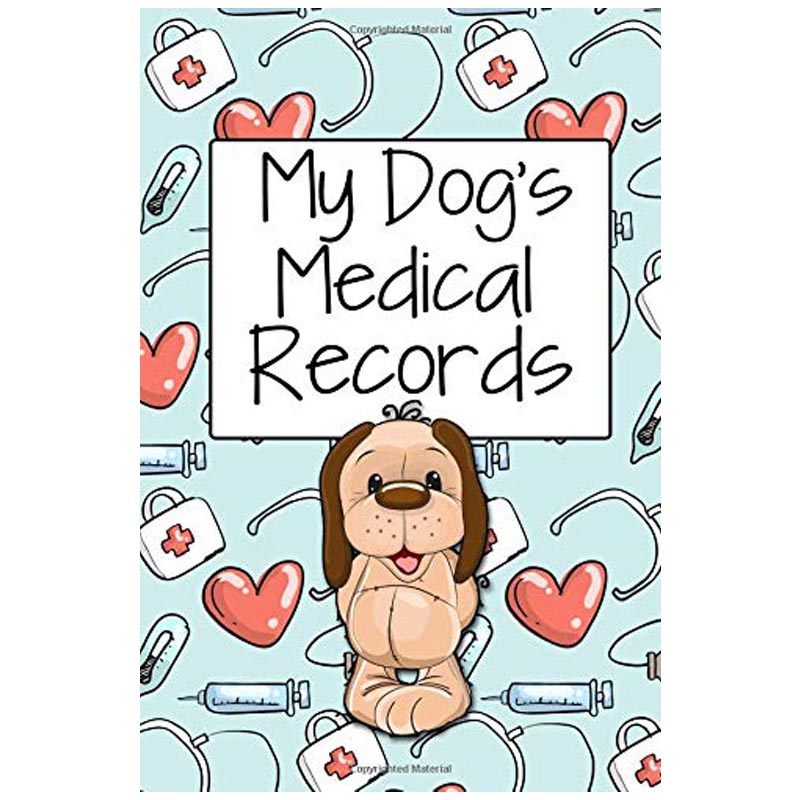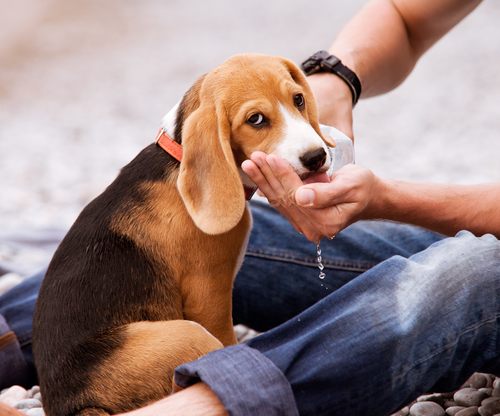
Having a new puppy in your home is exciting no matter what the breed. However, they need care as they grow. Puppies will grow to any of the following sizes depending on their breed category:
- Giant – 75-120+ lbs
- Large – 55-85 lbs
- Medium – 35-65 lbs
- Small – 7-35 lbs
- Toy – 2-9 lbs
But to get to that adult stage in a healthy capacity, they need good quality food, lots of love, activity, basic training, toys, socialization, a comfy place to call their own and good, consistent veterinary care. An important part of that care includes puppy vaccinations throughout their first year.
Puppies can be exposed to a lot of diseasesnot just in their first year of life but throughout their life stages. It can happen if they meet unvaccinated dogs or are exposed to the outdoors where there are other unavoidable threats to their health.
Contents
Caring for the Health of Your Puppy
Most puppies are busy exploring and being activewhen they are little. They get into everything as their curiosity gets the better of them. If they are old enough to go to dog parks and on walks, then there are some definite healthcare precautions they need to have while they are out and about exploring.
If you are not a breeder, then your puppy should be spayed or neutered for health and population control reasonsat the appropriate time. But even more important is they should also obtainvaccinations to keep them safe from often uncurable and deadly diseases.
VaccinationsYour Puppy Needs
Your new puppy will need to go to their veterinarian more than once over their first year of life and then later for booster shots throughout their adult years. These shots are important as they make sure our pets are healthy and protected from harmful and deadly diseases.
Vaccinations make most of these diseases and illnesses preventable. Many vaccinations are helpful, some are required, and some are optional although still important.
Vaccinations are Needed Against:
Bordetella Bronchiseptica
This infection causes coughing, vomiting and, under rare circumstances, can lead to seizures and death. It is one of the infecting bacteria that can cause kennel cough. It can be avoided with a needle or nasal spray forms of the vaccine. There are natural remedies as well such as Alpha Pet but check with your vet before using.
Canine Distemper
This very contagious disease is a severe threat to unvaccinated puppies. The virus attacks their respiratory and GI tracts. It also can attack the nervous systems of not just dogs but raccoons, skunks, and other animals. This disease is spread through the air, through things such as sneezing and coughing from an infected animal. It can also be transmitted through food and water that might be shared.
Your puppy will get runny eyes and nose and then a fever, cough, throwing up, diarrhea, seizures, paralysis and possibly death. There is no way to heal your puppy from distemper. You can only comfort them and try to tend to the symptoms of seizures, vomiting, and diarrhea with medications prescribed by your veterinarian. This illness becomes even more dangerous as your puppy can continue to spread it for months after getting it, threatening to infect other animals which can then lead to their reinfection.
Canine Hepatitis
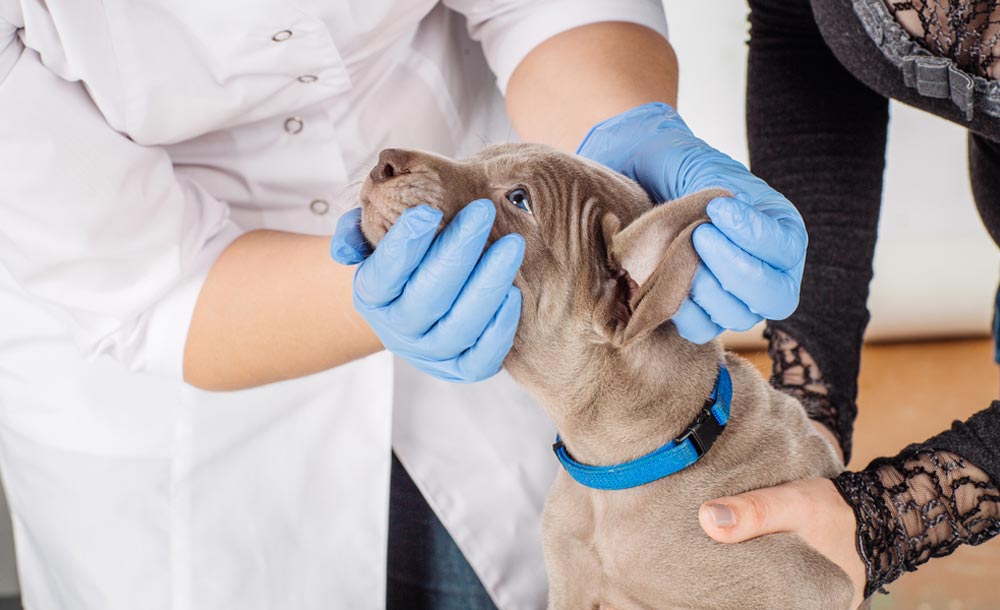
This is another highly contagious viral infection. This one attacks your puppy’s liver, kidneys, spleen, lungs, and eyes. It is a different virus than human Hepatitis but has similar symptoms. Your puppy’s symptoms can go from fever and sniffles to more extreme symptoms including vomiting, jaundice, tummy bloating, and pain in the area of the liver.
If your puppy gets a mild form of this disease, they can recover, but if they are hit with a severe form, it can be deadly. There is no cure for Canine Hepatitis,but the symptoms can be treated while the immune system gathers strength to fight it off.
Canine Parainfluenza
This a virus that can cause Kennel Coughas Bordetella bronchiseptica does. (see above)
Corona Virus
This is an infection that attacks your puppy’s GI tract and possibly their respiratory tracts as well. They may have symptoms of little appetite and the flu-like symptoms of vomiting and diarrhea. Unfortunately, this is another virus that has no cure, and the puppy’s immune system must fight it off.
Veterinarians can only make sure your puppy does not dehydrate by giving them fluids by IV and trying to keep them comfortable. There are no medications that can get rid of this type of virus, so it is a wait and see approach to healing.
Heartworm
This infection is one that is an ongoing issue for any age dog. Your puppy should start taking preventative medication between 12-16 weeks of age. This is not a condition that your pup can take a vaccine for but have the option for preventative medicine.
Heartworms get into your puppy’s heart which can then infect other areas of the body such as the liver and kidneys. These nasty worms can be up to 14 inches long and block and do damage to organs if they assemble in a lump. Oddly, this condition is not passed on by other animals but through mosquitoes.
Your puppy can only be diagnosed through a blood test. Heartworm is curable, but it takes a long time and is fairly expensive. They can also leave damage behind once the worms are gone. Use can use a flea and tick product for prevention as it addresses mosquitos as well and comes in different sizes.
Kennel Cough
This infection’s medical name is Infectious Tracheobronchitis. It isswelling in your puppy’s upper airways. Many things cause it. It can be bacterial, viral or part of other infections as mentioned above. This disease is usually manageable but makes your puppy feel lousy. They cough which can cause gagging, vomiting, and an overall loss of appetite.
If it is a serious bout, it can become deadly. Antibiotics can help severe cases but take time to clear up. Cough syrup can help your dog feel better by calming the main symptom while they heal.
Leptospirosis
This illness is from bacteria. These bacteria can be found in dirt and water that your newly exploring pup might get into. These bacteriaare problematic as they can travel between people and animals. If symptoms show up, there will be a fever, throwing up, pain in the abdomen, diarrhea, lethargy, jaundice, sore muscles and kidney issues. Antibiotics can aid in treating this illness, but it takes time and patience.
Lyme Disease
This illness is problematic in diagnosing in puppies as they do not get the symptomatic signs that humans do. Puppies get this disease from ticks that bite and pass on a bacterium called spirochete. Once infected, dogs may be seen limping, having swollen lymph nodes, fever, and no appetite.
The disease can attack their heart, kidneys, and joints as well as causing neurological issues if it’s not treated in the appropriate amount of time. Antibiotics will help in the battle against Lyme Disease, but your puppy can relapse more than once over their lifetime. Using a collar may help in prevention.
Parvovirus
This virus is extremely contagious and can jump from dog to dog but puppies that are not vaccinated or are under four months old are all high-risk targets. This virus will attack the gastrointestinal system with symptoms including the lack of hunger, throwing up, fever and diarrhea that often has blood in it.
The biggest threat for puppies is how fast they can dehydrate. It’s extremely important to get them to a vet quickly as they lose fluids at a fast pace. There is not a cure for this virus, but the veterinarian can keep your puppy hydrated until their immune system can kick in and get rid of the offending virus.
Rabies
This well-known disease can happen in most mammals and attacks the central nervous system of the animal it affects. It’s an awful disease that causes headaches, anxiety, hallucinations, drooling, paralysis and finally death. It is passed through a bite of an animal that has the virus and can travel from dog to any other animal including humans. Any bite must be treated within literally hours if there is any hope of a puppy recovering and people need quick treatment as well.
Puppy Vaccination Schedule
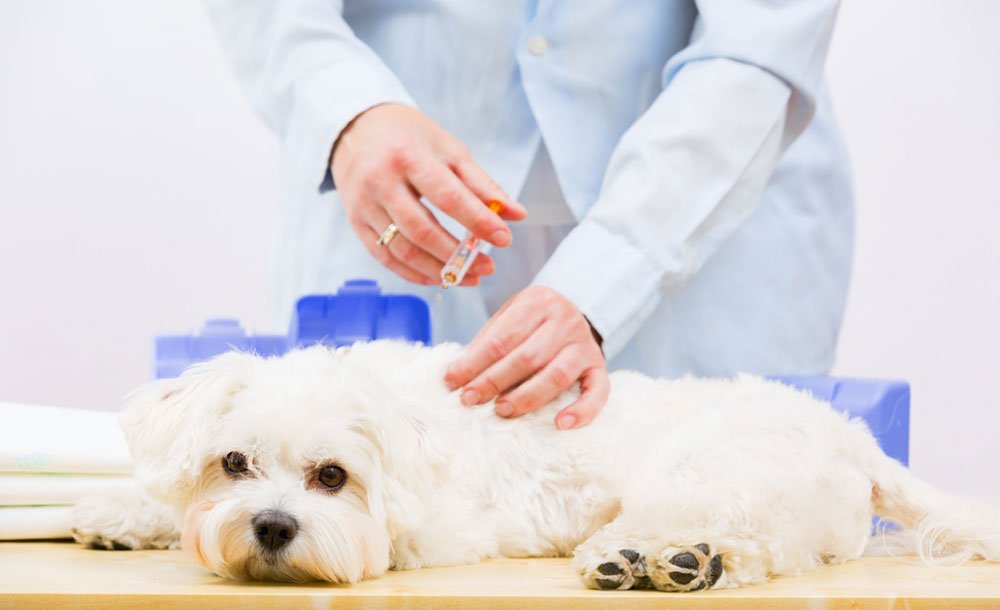
Now that it is clear how dangerous many of these diseases and infections can be, you will also notice that many of them have no cure. If your puppy is not vaccinated against them, you are putting their lives at risk through an inability to cure it, potential secondary infection or perhaps a weakened immune system that can not fight off the virus. That is why you need to protect your puppy through vaccinations.
They do have a financial cost, but your veterinary bills will surpass that in no time if they do get sick.
There is not one set vaccination schedule for all puppies. It can be dependant on where you and your pooch live along with various risk factors of each individual puppy. You and your puppy’s veterinarian can decide what vaccinations are critical for your dog and when they should have them done.
However, even though each puppy has their own schedule based on their own particular needs, there is a general guideline that will help outline timing for the first year of their lives:
| Puppy’s Age | Needed Vaccinations | Optional Vaccinations |
| 6-8 weeks | Distemper, measles, parainfluenza | Bordetella |
| 10-12 weeks | DHPP (distemper, hepatitis, parainfluenza Parvovirus) | Coronavirus, Leptospirosis, Bordetella, Lyme Disease |
| 12-24 weeks | Rabies | None |
| 14-16 weeks | DHPP (see above) | Coronavirus, Lyme Disease, Leptospirosiss |
| 12-16 months | Rabies, DHPP (see above) | Coronavirus, Leptospirosis, Bordetella, Lyme Disease |
| 1-2 years | DHPP (see above) | Coronavirus, Leptospirosis, Bordetella, Lyme Disease |
| 1-3 years | Rabies (many places require this by law) |
Cost of Vaccinating Your Puppy
Costs will vary across cities and towns simply due to where you live and what your vet decides to charge due to their overhead costs as a business. You will not have a choice about getting some vaccines no matter what they cost as they are required by law to keep both your puppy, other animals, and yourself safe. Some general costs will give you a ballpark idea:
- Core Vaccines will range in cost from $75-100. These are the vaccines that will be given when your puppy is 6, 12 and 16 weeks of age. This includes distemper, hepatitis, leptospirosis, parvovirus, and parainfluenza which all fall under the DHLPP vaccine.
- Rabies is also a core vaccine and can cost around $15-20
If you got your puppy from a reputable breeder or well-known rescue, they should have all the core vaccinations up until the time you get them. They are also always spayed or neutered if they are from a rescue. If this isn’t the case, they will ask you to sign a form stating you will do this in a specified amount of time.
You’re Not Quite Done with Vaccinations Yet
Veterinarians and owners do not always agree that dogs need to be vaccinated every year. Some think over vaccination can cause health risks as your puppy ages. Others say the importance of vaccinations outweighs the risk of those issues. As a dog owner, you can have a test done on your puppy that measures their immunity levels to see if they actually need more vaccinations or not. However, this is not a viable option when it comes to the rabies vaccine. Rabies is required by law in most areas.
Final Thoughts
Puppies of any breed are wonderful pets but take quite a bit of work while they grow. It’s important to stay on top of their health needs such as vaccinations against potentially serious and deadly illness and disease.
To make this easier use medical tracking books to help make sure you know when and what your puppy was given as a vaccine. It also helps keep them up to date to make sure they can avoid the pitfalls of contagious illnesses.
I grew up in a household that was filled with animals. I believe that my fate as a dog-loving person was sealed in early childhood since my parents owned several dogs of varying sizes and breeds. There was no choice but to take care of and learn about dog habits and the best animal care practices — otherwise, I’d be clueless about how to go about the creatures I was surrounded by day and night.
As a life-long puppy lover, I know a thing or two about dogs and how to go about caring for them in the best way possible. Although I’m not a professionally trained dog behaviorist, trainer, or veterinarian, all of my knowledge and experience with canines comes from a place of love and a deep-rooted passion for dogs and animals in general.
Seeing as dogs kept me company throughout every stage of my life, I decided to follow a different path in my academic life and obtained a Bachelor’s and Master’s degrees in Marketing Management and Digital Advertising, which ultimately allowed me to combine my professional training and personal experience by creating the ultimate dog lover’s resource website! Along with my husband, Dave, I run MySweetPuppy for like-minded dog lovers who want to have a single, clear, and reliable information source about anything and everything related to dogs and their well-being.

